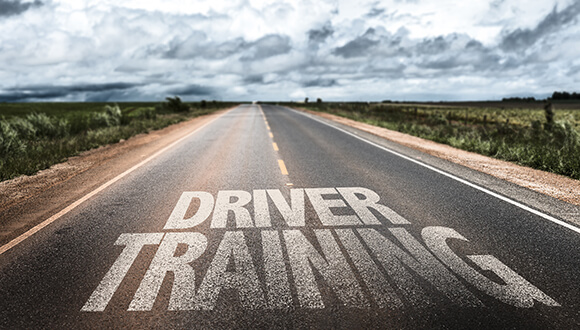Driver training should not be ignored due to Covid-19
09/09/2020 00:00:00by Mark McKenna09/09/2020 00:00:00Driver training should not be ignored due to Covid-19Bluedrop Services


Coronavirus has meant we have all had to adjust to a new way of working, quickly. The lockdown has caused the temporary closures of most retail and hospitality stores, and people are turning to online shopping and relying on deliveries to get hold of any essential items they need.
The reliance on delivery drivers has meant that it’s been business as usual for couriers, with the extra pressure of more items to deliver to various households. However, with busier times and less interaction with others, there has been a decline in driver training. The lack of such training is dangerous and expensive.
The risk of ignoring driver training during coronavirus
Your businesses main priority is to hit delivery targets and ensure that the process runs as smoothly as possible, especially with the increase in demand. However, driver training should not be ignored or forgotten about during these busier times.
According to the RAC, 44% of people in the UK have seen more drivers speeding at present. The decrease in traffic and the responsibility of delivering parcels during these times could have impacted the higher rates of speeding.
Not only this, as seen as in Fleet Source’s recent survey, 57% have also said that their drivers would be behind on CPC training hours. And 94% of booked driver training has been cancelled due to COVID-19.
The lack of training puts both the driver and other road users at a higher risk of road accidents. Not only this, but it would also mean a rise in insurance and accident claims which can be costly.
There are many ways you can still train your drivers under the lockdown restrictions to keep your drivers and other road users safe during these unusual times.
How to train your drivers during the COVID-19 pandemic
The first thing you will need to do is look at who urgently needs the driver training. If their training is overdue, and the driver is concerned that they have forgotten vital information, then they will need to attend the training session. There are many ways that will allow you to keep your drivers safe during the coronavirus.
Virtual and remote drivers training
Many driver training providers are turning to remote and virtual driver training sessions. This training is essential to keep drivers safe during the lockdown.
There are a couple of training suppliers who have moved their training sessions online, to continue the upkeep of road safety and public health. Some training providers are also offering free services to business operators whose drivers are essential during the lockdown.
Driver training courses can cover a diverse range of topics including driver health, legal obligations, vehicle care, risk mitigation and coronavirus guidance. The training usually takes around 20 minutes.
Keep track of who needs driver training
You need to check that all driver’s safety knowledge is fresh and up to date by arranging training sessions. It is important to include all new drivers and those who are overdue the health and safety training on the next training session.
For all new and long service employees, you can create or find a template of a checklist to ensure your drivers are confident enough to perform their duties, especially during the coronavirus where the health and hygiene measures are crucial.
Checklist for drivers training
The checklist can include specifics around coronavirus to ensure that they feel safe enough to deliver parcels to multiple households. This includes:
- How they are feeling
- If they have been in close contact with someone with coronavirus symptoms
- If they have sufficient PPE if needed
- If they have the correct amount of disinfectant to properly clean their vehicle
- If they can adhere to the social distancing measures
- How comfortable they are about their work
This can also include a checklist to make sure they understand and are sticking to the legal requirements of driving a vehicle and are taking the correct number of breaks to limit driver fatigue. If any of these surveys/checklists come back with concerning results, you will need to put them forward for driver training.
You can find more information on driver’s safety on the government website.
The importance of keeping on top of this training is very important during these stressful times. The health and safety of your drivers are paramount to prevent any accidents or fines. This will also help to reduce any fleet insurance claims and keep overall costs down.
Return to blog menuWant to find out more about Bluedrop's Motor Fleet Insurance?
Call our friendly team now for the right insurance cover - at the best price
+441489780491
Calls recorded for training and quality.



 Privacy and Cookie Policy
Privacy and Cookie Policy